News
Tenure of National Assembly Service Commission Board ends today
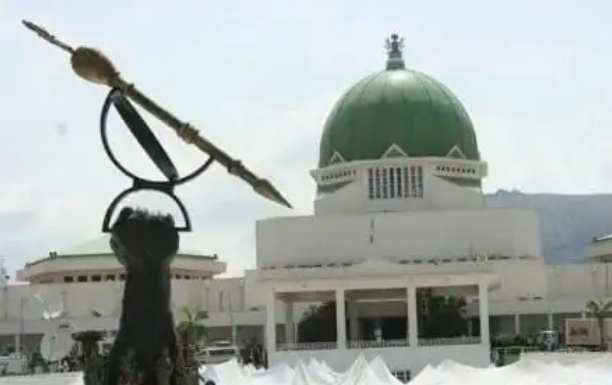
By Kayode Sanni-Arewa
The five-year tenure of the board of the National Assembly Service Commission [NASC], under the chairmanship of Engr Ahmed Amshi, will end today, Friday, February 7, 2025.
The Board held a valedictory meeting on Thursday, February 6, 2025 to deliberate and finalise its winding down process.
The commission was inaugurated in 2015 consequent upon the enactment of the Establishment Act.
The 13-member board (with two members from each geo-political zone as circumscribed in the enabling Act) was proposed under the Bukola Saraki Senate Presidency from 2015- 2019, with Senator Joy Emordi penciled down as Chairman, but the arrangement was not consummated until Saraki left office.
The board was inaugurated under Ahmad Lawan Senate Presidency in 2020 with Ahmed Amshi, a legislative aide to Lawan, getting appointed as chairman to preside over a 13-member board that comprised some former federal legislators both from the Senate and the House of Representatives.
The National Assembly Service Commission (NASC) Act of 2014 gives the NASC the power to manage human resources, make regulations, and handle establishment matters for the National Assembly.
It is saddled with the responsibilities to appoint, promote, and transfer staff members, in addition to dismissing and exercising disciplinary control over staff members.
In addition, it establishes a retirement benefit scheme for retiring officers and makes regulations relating to conditions of service, including salaries and allowances.
NASC formulates and implements guidelines for its functions.
It handles establishment matters of the National Assembly, including appointment of the Clerk to the National Assembly, the Deputy Clerk to the National Assembly, and other offices in the service of the National Assembly
The Commission submits an estimate of its income and expenditure to the National Assembly each year.
The NASC is empowered to handle these functions without having to rely on the Federal Civil Service Commission.
In 2020 the Commission sent jitters down the spines of staff members by directing the then Clerk to the National Assembly, Sani Ataba Mohammed Omolori and over one hundred and fifty (150) staff members due for retirement, to retire immediately.
However, after the administrative cleansing, the commission became highly political, indulging in moves, overtures, and decisions that compromised and undermined its mandate.
Recently, after successfully and seamlessly consummating the appointment of Barrister Kamorudeen Ogunlana as the substantive Clerk to the Natiional Assembly, it had gone ahead to mess up the appointment of the Deputy Clerk to the National Assembly by elevating the wrong person to the position.
The plot orchestrated by Engineer Amshi saw Ibrahim Atiku named as acting DCNA, but after the top bureaucrats protested to the leadership of the National Assembly, the Senate President, Godswill Akpabio and Speaker of the House of Representatives, Tajudeen Abbas, intervenef to cure the mischief caused by Amshi.
Bashir Yero was eventually picked from the pool of 13 permanent secretaries to step into the position of DCNA.
It would be recalledl that the Senate confirmed the appointment of board members for the National Assembly Service Commission with Ahmed Amshi, the former Senior Legislative Aide to the President of the Senate, Senator Ahmad Lawan as Chairman. Mr. Amshi, along with 12 others, in 2015.
Amshi has served out his term of five years as the executive chairman. The same applies to members of the Commission.
In a letter read by the then President of the Senate, Sen. Ahmad Lawan, at the plenary session of Tuesday, 10 December 2019, the then President Muhammadu Buhari forwarded the names of the nominees for screening and confirmation.
Members of the Board included Babagana Modu, Sen. Abubakar Tutare, Hakeem Akamo, Tunrayo Akintomide, Atanomeyorwi Francis, Engr. Bassey Etuk, Hon. Bassey Etuk, Hon. Bailyaminu Yusuf Shinkafi, Sadi Saidu Kazaure, Sen. Julius Ucha, Nnamdi Anyaehie, Auwalu Aliyu Ohindase, and Muazu Is’haq.
The constitution of a new Board had raised several controversies arising from the earlier nomination of Sen. Joy Emordi as the Executive Chairman and the extension of tenure for the Clerk of the National Assembly.
Sen. Emordi, who had earlier been nominated for the office, was expected to take over from Dr. Adamu Fika, the immediate past Chairman whose tenure expired in July 2019, following his retirement from the Federal Civil Service.
The Senator Emordi takeover [proposed chairmanship] fell through as she did not make the list eventually.
THE CONCLAVE
News
Scandal! Osun monarch, pastor admit to COVID-19 fraud in US

The Apetu of Ipetumodu in Osun State, Oba Joseph Oloyede, and a Nigerian pastor, Edward Oluwasanmi, are facing possible prison sentences in the United States after pleading guilty to charges of COVID-19 relief fraud.
Oba Oloyede, a US-based accountant and information system expert, was appointed the new Apetu in July 2019.
The monarch and Oluwasanmi were arrested in early 2024 for their roles in a scheme to fraudulently obtain $4.2m in COVID-19 relief funds.
The two men were charged with 13 counts of conspiracy to commit wire fraud, wire fraud, conspiracy to defraud, money laundering, and engaging in monetary transactions in criminally derived property.
They were arraigned before Justice Christopher Boyko of the US District Court of Ohio.
Saturday PUNCH had exclusively reported the arraignment of Oloyede while residents of Ipetumodu were at a loss over his disappearance from the community after a trip abroad.
Our correspondent had reported that there was anxiety in the community after the 62-year-old was absent from several important festivals that required his presence.
After investigating, Saturday PUNCH confirmed that the monarch was being held by the US authorities.
According to court documents obtained by our correspondent, Oloyede and Oluwasanmi submitted falsified applications for Paycheck Protection Programme and Economic Injury Disaster Loans under the US Coronavirus Aid, Relief and Economic Security Act between April 2020 and February 2022, using fake tax and wage documents to secure funds meant to support struggling businesses during the pandemic.
The Act was designed to provide emergency financial assistance to Americans suffering the economic effects caused by the COVID-19 pandemic by issuing loans to small businesses and non-profit entities experiencing revenue loss due to the pandemic.
The Act also authorised the US Small Business Administration to issue advances or grants of up to $10,000 to small businesses.
Oba Oloyede, who was based in Medina, Ohio, before his enthronement, was accused of using some of his companies, including Available Tax Services Incorporated, Available Financial Corporation, and Available Transportation Company, to defraud the government through the COVID-19 relief fund.
Oluwasanmi was also accused of using his companies: Dayspring Transportation Limited, Dayspring Holding Incorporated, and Dayspring Property Incorporated to obtain millions of dollars, which he later diverted for his expenses, in breach of US federal laws.
According to court documents, Oba Oloyede and Oluwasanmi, among other things, fraudulently obtained the sum of $3.76m from the US Paycheck Protection Programme and Economic Injury Disaster Loans scheme.
After about one year in court, the duo pleaded guilty to some of the charges and might face some prison sentences.
On April 10, Oluwasanmi, through his counsel, Henry Hilow, pleaded guilty to counts one, 11, and 12 of the indictment.
In the said counts, Oluwasanmi was accused of using some of the proceeds of the fraud to purchase a commercial property on 422 South Green Road, South Euclid, Ohio, through wire transfer, and transferring money into Dayspring transportation brokerage account.
“Guilty plea entered to counts 1, 11 and 12 of the indictment. Plea agreement executed. Sentencing set for July 2, 2025, at 10am in Courtroom 9A. Defendant’s bond to continue with same conditions as previously ordered,” the document read.
On Monday, April 21, Oba Oloyede submitted his guilty plea before the court.
The court fixed Thursday, April 24, for the hearing of his pleas.
Oba Oloyede’s long absence from his community has been generating reactions from community leaders and chiefs, especially after he reportedly demolished the town’s palace with a promise to build a befitting one upon return from his trip before his arrest.
With the report of his trial in the US, some residents are demanding that the state government investigate the matter and intervene.
Credit: PUNCH
News
CBEX: EFCC declares four persons wanted over crypto fraud + photos
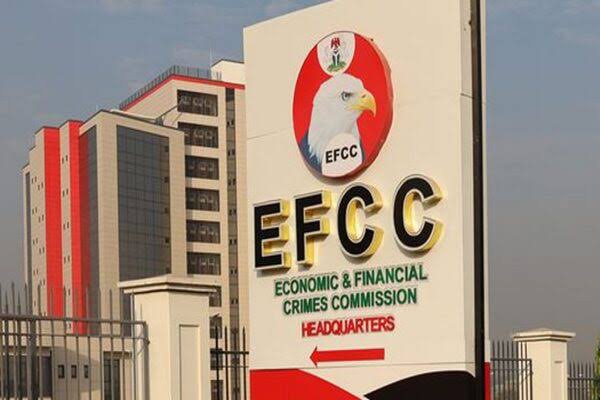
Four persons have been declared wanted by the Economic and Financial Crimes Commission (EFCC) for their alleged roles in a fraudulent scheme linked to the online trading platform, Crypto Bridge Exchange, better known as CBEX.
EFCC issued a public notice on Friday and named the individuals, Seyi Oloyede, Emmanuel Uko, Adefowora Oluwanisola, and Adefowora Abiodun Olaonipekun.
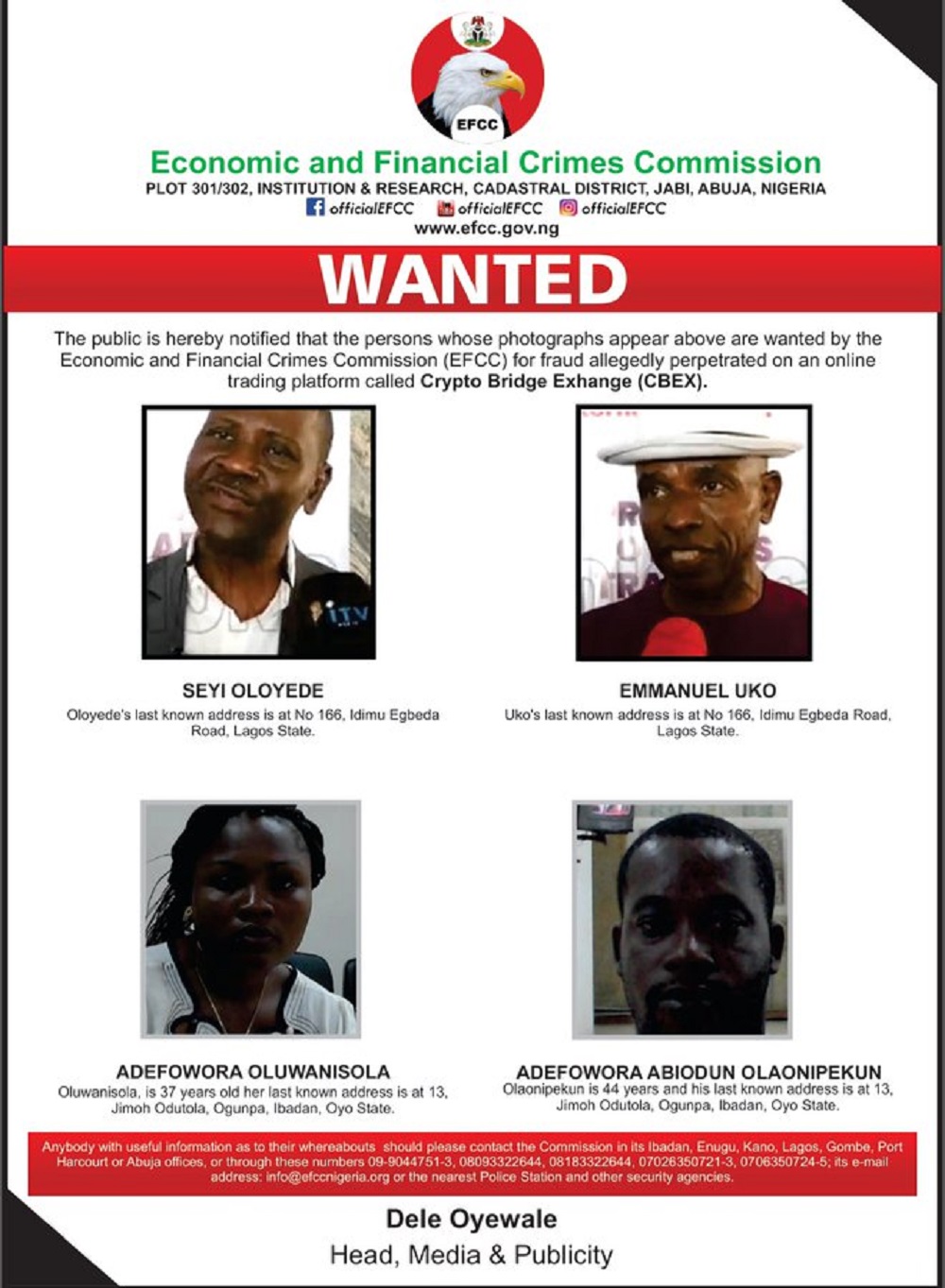
Signed by EFCC’s Head of Media & Publicity, Dele Oyewale, the notice restated its commitment to fighting financial crimes, particularly in the increasingly exploited crypto space.
The EFCC disclosed that while Oloyede and Uko were last traced to No. 166, Idimu Egbeda Road, Lagos State, Oluwanisola and Olaonipekun were last known to reside at 13, Jimoh Odutola, Ogungpa, Ibadan, Oyo State.
Members of the public with useful information on the whereabouts of the four persons were urged by the commission to reach out to the EFCC through its offices in Ibadan, Enugu, Kano, Lagos, Gombe, Port Harcourt, or Abuja.
News
Atiku Responds to Surge of PDP Defections, Describing It as ‘Fundamental Democratic Rights’
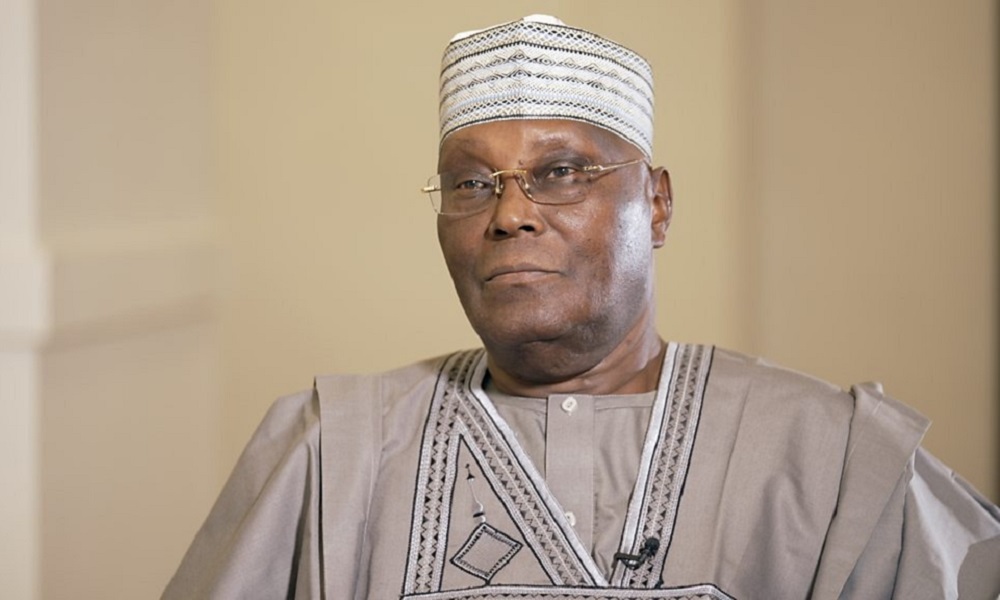
Former Vice-President Atiku Abubakar has responded to the recent wave of defections from the Peoples Democratic Party (PDP).
In a statement released on X on Friday, the 2023 presidential candidate of the PDP, said it is important to state clearly that “freedom of association and expression are core democratic rights — not privileges”.
“Let me be unequivocal: freedom of association and expression are not optional in a democracy — they are fundamental rights,” he wrote.
“Alongside these stand the pillars of a just and functional democratic society: the people, the rule of law, credible elections, and accountability. Undermine any of these, and democracy itself begins to crumble.”
On Wednesday, Sheriff Oborevwori, the incumbent governor of Delta, left the PDP for the All Progressives Congress (APC), while Ifeanyi Okowa, his immediate predecessor, is set to join the ruling party soon.
Oborevwori succeeded Okowa as the governor of Delta after winning the 2023 election on the platform of the PDP.
In recent weeks, the PDP has lost several members to the ruling APC, with other governors and key party members also reportedly planning to defect.
Abubakar said any attempt to erode these values is a direct threat to the survival of democracy in Nigeria.
He said that defections and political alignments are part of the country’s evolving democratic culture, and must not be seen as betrayal.
“As someone who believes deeply in democratic ideals, I bear no ill will towards anyone who chooses a different political path,” he said.
“Politics will always involve shifting alliances — we’ve seen them in the past and we’ll see more in the future.”
Abubakar also addressed criticism that trailed his recent visit to former president Muhammadu Buhari in Kaduna.
Earlier this month, the ex-VP led a delegation, including Nasir el-Rufai, former governor of Kaduna; Aminu Tambuwal, former governor of Sokoto; and Isa Pantami, former minister of communications, to Buhari’s residence.
The former vice-president said his visit was delayed due to his obligations in Adamawa, where he had taken part in Sallah celebrations.
Days after the visit, the move drew widespread criticism, particularly from within the PDP, with many labeling it as unacceptable and a show of anti-party activity.
However, Abubakar dismissed the outrage as hypocritical, citing past instances when opposition leaders consulted former presidents without backlash.
“It is not a sin to visit Buhari,” he said.
“During the 2013 opposition merger talks, key political figures made visits to Obasanjo and Babangida — so why is it now sacrilegious to visit Buhari?”
Abubakar questioned why some PDP leaders are applauded for meeting President Bola Tinubu, yet his own engagements are labelled suspicious.
“When PDP leaders drink tea with Tinubu and cut power-sharing deals, it is called ‘strategy,” he said.
“But when I greet Peter Obi, meet Nasir el-Rufai, or visit Buhari, it becomes a national scandal.”
He also described the reactions as driven by double standards, warning that Nigeria’s politics is becoming riddled with “selective outrage”.
Abubakar said the real issue before Nigerians is not about political parties anymore, but about the failure of the current administration.
“This is no longer APC vs PDP or Labour Party vs APC,” he said.
“It is Nigerians vs a regime that has plunged the nation into misery.”
He blamed the Tinubu administration for a collapsing economy, surging inflation, growing joblessness and increasing youth agitation.
“Nigerians are not just tired — they are angry,” he said.
Abubakar called for unity against what he described as a government bereft of vision and performance.
He urged Nigerians to reject ethnic, religious or regional distractions, noting that such tactics are meant to divide and confuse the populace.
“The Tinubu government has nothing to show — no policy wins, no achievements,” he said.
“All it has is confusion and division. That’s the only thing incompetence knows how to offer.”
Abubakar warned that mismanagement at the top poses grave danger to all Nigerians, regardless of background or party affiliation.
“An incompetent captain doesn’t just sink his ship; he puts everyone on board at risk,” he added.
-

 News17 hours ago
News17 hours ago2027: Pro-Fubara protesters want suspended Gov to run as Atiku’s VP(Video)
-
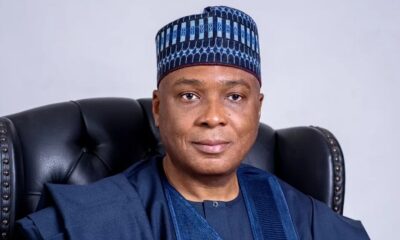
 News20 hours ago
News20 hours agoOborevwori /Okowa: PDP experiencing a rebirth and will soon bounce back-Saraki declares
-
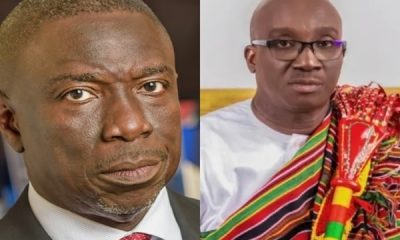
 News18 hours ago
News18 hours agoEdo poll: How APC allegedly offered witnesses N30m bribe
-

 News18 hours ago
News18 hours agoFlights resume as NiMET unions suspend strike
-

 News11 hours ago
News11 hours agoRivers State is yet to fully stabilise– Ibas
-
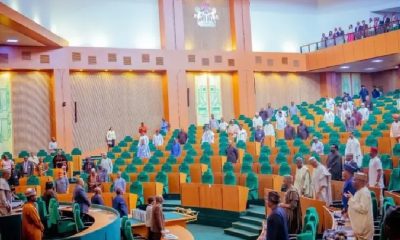
 News14 hours ago
News14 hours agoOsun PDP Reps Dismiss Defection Claims, Pledge Support for Adeleke
-

 News18 hours ago
News18 hours agoOver 26,000 Lagos students failed 2024 WASSCE despite govt paying over N1.5bn WAEC fees
-

 News18 hours ago
News18 hours agoTeachers Strike: FCT minister, Wike summons Council Chairman


















